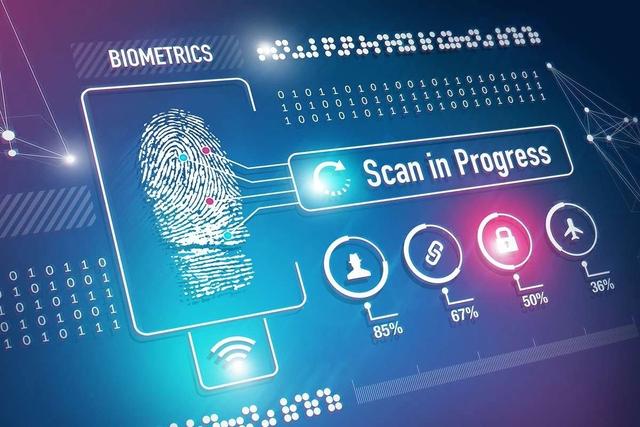Observation 丨 Undocumented is better than evidence-the combination of virtual and real identity

Figure 1 Source: ITproToday
The Dilemma of Current Paper Identity
Birth certificates, passports, household registration books, identity cards—a series of identity documents are playing an increasingly important role in people's lives. However, in today's increasingly digital age, these documents are increasingly "inefficient" due to their paper "identity"; in addition, the issuance and verification of paper IDs relies on a strong center and therefore faces a single point of failure risks of. In fact, according to data from the United Nations in 2018, approximately 1.1 billion people worldwide do not have ownership of their own identities, and the loss of identity ownership means they face marginalization in society as a whole. Therefore, how to solve the predicament of the current paper identity has become one of the hot topics of discussion.

- Ban cryptocurrency payments? Even Russia ’s own officials find it difficult
- Blockchain 丨 Bakkt CEO will become Georgia senator, Bitcoin is expected to enter mainstream US politics
- Interview with Li Ming of the Ministry of Industry and Information Technology: Understanding Decentralization of Blockchain with Cross-border Transactions and Cold Chain Logistics
Figure 2: Paper identity Source: Medium
Digital identity
Digital identity, as defined by KatalinFeher, refers to a digital database based on users and digital systems. Because of its decentralized nature, digital identities based on blockchain technology can reduce dependence on third-party intermediaries and realize identity ownership. In addition, the blockchain is a distributed ledger, and each node has access to the entire blockchain. Data is backed up. Therefore, compared with traditional paper identities, digital identities based on blockchain technology effectively avoid single points of failure and have more advantages in data storage.
Of course, the advantages of digital identity go far beyond that. As the founder of BanQu said, "Blockchain-based digital identity is nothing new. The true value of blockchain is to provide and secure an economic identity for more than one billion basic people in the world, and this is a An opportunity for true innovation. "
In other words, blockchain technology provides a platform for the realization of identity self-attribution. The following will confirm this argument through the perspectives of two groups of people.

Figure 3: Digital Identity Source: Data Driven Investor
Homeless
For homeless people, the cost of maintaining paper identity will become very high due to the lack of residence; and from the service provider's perspective, the collection of such population information will become inefficient And uneconomical. The corresponding chain reaction is that such vulnerable groups cannot get necessary services such as first aid and employment assistance. In contrast, digital identities based on blockchain technology not only allow users to authenticate themselves more quickly and easily, but service providers can better track user information and transactions based on private chains. . Therefore, the living conditions of the homeless will be improved accordingly.
Refugee
It is conservatively estimated that the number of refugees in the world now exceeds 20 million. In addition to suffering from displacement, they also face the dilemma of the lack of their original legal status. With this in mind, the United Nations and the World Food Programme have launched a pilot project since 2018.
The entire project is based on the Proof-of-Authority Consensus Mechanism (POA) and runs on a private chain through the Parity Ethereum client. Refugees use biometric eye scans to obtain their accounts and receive food. Although the project is still in the experimental stage, digital identities based on blockchain technology have shown good prospects in terms of legal status remodeling and financial assistance; in addition, data on refugee education and skills are expected to be recorded in the block in the future. On the chain, it helps to improve the economic situation of refugees. These advantages cannot be realized in the paper identity system.

Figure 4: Biometric Scan Source: Roland Berger
Digital identity improves voting fairness
In addition to giving basic people an economic identity, digital identity can also help increase voting participation. Each digital identity holder can vote on an electronic voting platform. Based on the immutable and decentralized characteristics of the blockchain technology, while the personal information of each voting participant is protected, the voting records cannot be tampered with to achieve fairness. Therefore, the digital identity voting mechanism will greatly increase voting participation and make the whole process more fair and democratic to a certain extent.
At present, the digital identity voting mechanism has been implemented to a certain extent in small countries such as Switzerland and Estonia.
Challenge: The choice between scalability, decentralization, and security
Digital identity, like blockchain technology, faces the classic ternary paradox of scalability, decentralization, and security. In order to improve security, many experimental projects have to sacrifice a certain degree of decentralization. In addition, due to the constraints of scalability, the digital identity voting mechanism can currently only be promoted in some small countries.
In general, most digital identity experimental projects focus on security in scalability, decentralization, and security, and use smart contracts to ensure the privacy of sensitive data.
Conclusion
In today's increasingly digital world, digital identity based on blockchain technology effectively avoids single points of failure and provides a platform for identity self-attribution. However, it is also because of blockchain technology that digital identities also face the classic ternary paradox of scalability, decentralization, and security. Regarding the prospect of digital identity, as Yoshiyuki Yamamoto said: Although blockchain technology has made a qualitative leap in digital identity, we are still in a very early stage.
Author: JustineHumenansky
We will continue to update Blocking; if you have any questions or suggestions, please contact us!
Was this article helpful?
93 out of 132 found this helpful
Related articles
- People's Daily Online: How do countries welcome the advent of the blockchain era?
- Was Telegram defended, was the "extra" 6 months to fight enough?
- Is an exchange losing $ 250 million in cryptocurrencies a Ponzi scheme: Quadriga Bizarre Story
- Opinion: Excessive speculation that privacy coins will die
- Babbitt launches "strict selection platform for industrial blockchain", 3 major services help technology landing
- The impact of blockchain on China's macroeconomic future, Zhu Min answered me like this
- Clash of Bulls and Bulls, 50-Week Golden Line Operation! 11/30 market analysis





